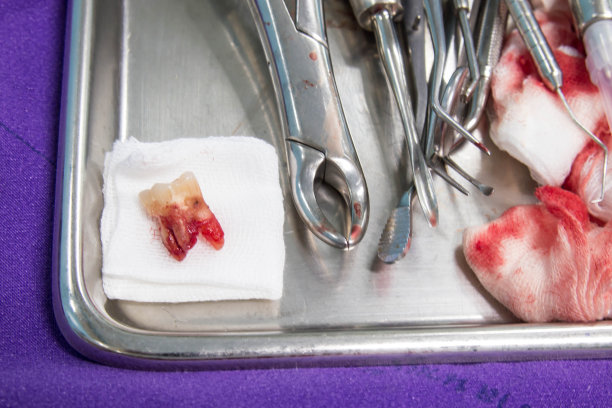Summary: The decision to undergo dental implantation procedures requires careful consideration of several essential safety guidelines and precautions. Prior to the procedure, patients should focus on understanding their medical history, evaluating the skill of the dental professional, discussing potential risks and complications, and considering post-operative care requirements. This article will explore these four critical areas in depth, empowering individuals to make informed choices and ensuring a safer, more successful dental implant experience.
1. Understanding Medical History is Crucial

Before undergoing dental implantation, patients should thoroughly discuss their medical history with their dental professionals. This includes detailing any pre-existing conditions, such as diabetes or heart disease, which could complicate the procedure or the healing process.
Moreover, patients must disclose any medications they are currently taking. Certain medications, including blood thinners or medications that affect bone health, can pose significant risks during and after dental surgeries.
Lastly, patients should inform their dentist about past dental procedures and any adverse reactions to anesthesia. This knowledge is vital in determining the safest approach for the dental implant procedure.
2. Evaluating the Expertise of the Dental Professional
Choosing the right dental professional is paramount for a successful dental implant procedure. Patients should seek practitioners who have significant experience and specific training in dental implants. Qualifications such as board certification can provide additional assurance of the dentists expertise.
Moreover, reviewing the dentist’s patient testimonials and before-and-after photos of previous patients can offer insight into the quality of their work. A good dentist will also be transparent about their experience and willing to answer any questions.
Additionally, scheduling a preliminary consultation can help assess the dentists communication style and willingness to discuss concerns. Feeling comfortable and informed with the chosen dental professional is key to a positive experience.
3. Discussing Risks and Complications Openly
All surgical procedures come with inherent risks, and dental implant surgery is no exception. It is essential for patients to have an open dialogue with their dentist regarding potential risks, such as infection, nerve damage, or implant failure.
Moreover, understanding the likelihood of these complications can help in setting realistic expectations. The dentist should explain how these issues can be mitigated, such as through proper hygiene and following pre- and post-operative instructions.
Additionally, patients should inquire about the recovery timeline and any medications prescribed for pain management or infection prevention. These discussions can help alleviate anxiety and foster a better understanding of the process.
4. Planning for Post-Operative Care and Recovery
Post-operative care is a critical part of the dental implant process that requires careful planning. Patients should follow the specific care instructions given by their dental professional to promote healing and reduce the risk of complications.
This may include dietary restrictions, such as avoiding hard or chewy foods immediately after the surgery, as well as maintaining a rigorous oral hygiene routine. Keeping the mouth clean is vital for preventing infections.
Additionally, patients should be aware of the signs of potential complications, such as excessive swelling, pain, or discharge, which warrant immediate medical attention. Proper planning ensures a smoother recovery and aids in achieving the desired outcome of a successful dental implant.
Summary:
In conclusion, understanding essential safety guidelines and precautions prior to dental implantation procedures is vital for patient safety and success. By focusing on medical history, evaluating dental professionals, discussing potential risks, and preparing for post-operative care, patients can ensure a positive dental implant experience. Comprehensive knowledge and cooperation with dental care providers will contribute significantly to the overall success of the procedure.
This article is compiled by Vickong Dental and the content is for reference only.
Vickong Dental
Vickong Dental is a large medical group established in Hong Kong in 2008 by professors from well-known medical universities in Guangdong and Hong Kong, as well as medical doctors from key national '985' universities (including Master's supervisors and senior professors). The chain of branches brings together expert dentists with PhDs and Master's degrees from Hong Kong and Mainland China, committed to providing high-quality dental treatment.
"Vickong Dental Practices the University Motto of 'Healing and Serving Society,' with a Stable Operation for Sixteen Years. It Has Been honored with Hong Kong Enterprise Leaders's Choice,' and is a Global Trusted Implant Center for the Nobel Implant System. Recommended by Hong Kong Metro Broadcast and Guangdong Television, it Serves Customers from Over Thirty Countries and Regions, Gaining the Trust and Favor of Citizens from the Guangdong-Hong Kong-Macau Greater Bay Area and Surrounding Cities.

Thousands of customers' unanimous praise
The most recognized and highly recommended dental service by customers in the Guangdong-Hong Kong-Macau Greater Bay Area
We Ensure You Receive Detailed Care and Attention Here
Hong Kong standards, Shenzhen prices, Your Trusted English-speaking dentists

Vickong Dental Medical-Grade Instrument Disinfection Process
Vickong Dental Medical-Grade Instrument Disinfection Process

Vickong Dental Chain: A Warm and Comfortable Environment for Treatment






Appointment Hours

Q&A
Why choose Vickong Dental?
Vickong Dental practices the university motto 「Medicine to Benefit Society」, with each branch bringing together highly qualified dentists with doctoral and master’s degrees from Hong Kong and the Mainland, and has maintained seventeen years of steady operation。Recipient of 「2024 Hong Kong Enterprise Leaders Brand」, 「2025 Hong Kong Enterprise Leaders Brand」, a Nobel Biocare Global Trusted Implant Center, and a brand recommended by Metro Radio Hong Kong and Guangdong TV。
To date, we have served customers from more than thirty countries and regions,earning exceptionally high word-of-mouth recognition and trusted recommendations from residents across the Guangdong-Hong Kong-Macao Greater Bay Area and surrounding cities
We have eight major branches in Zhuhai、Shenzhen,and a consultation and service assurance center in Hong Kong,so you can book a free consultation at any time for any questions,which is very reassuring.
If I do not accept the quotation after the CT scan, will I be charged??
No! As long as the actual treatment has not started, you will not be charged any fees.
Will there be any additional charges during the treatment process?
No, there won’t be any additional charges. Before treatment begins, we will clearly explain the treatment plan and its corresponding fees. Only after the patient agrees and signs the consent form will we proceed with the dental service.
Can I pay in Hong Kong dollars?
Yes. Vickong Dental accepts payment in Hong Kong dollars. The amount will be converted based on the exchange rate of the day, and the applicable rate will be clearly communicated to you in advance.
Can I reschedule my appointment at any time?
Yes. Please contact us via **WeChat** or **WhatsApp** as early as possible, providing your original appointment time and details, along with your preferred new date and time slot for rescheduling.













